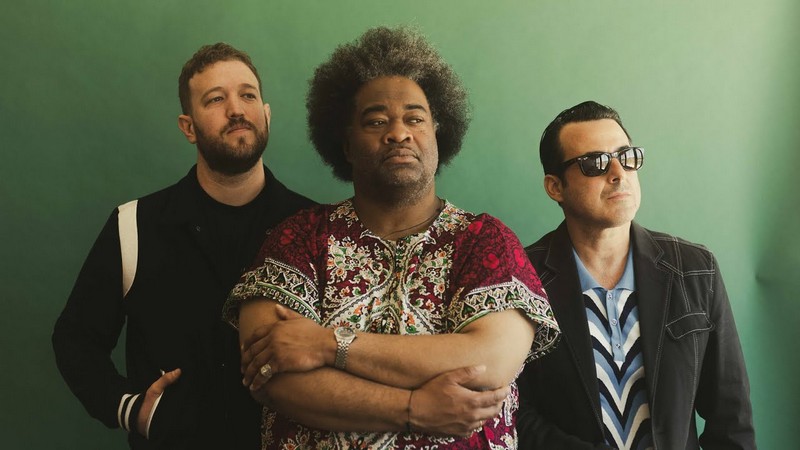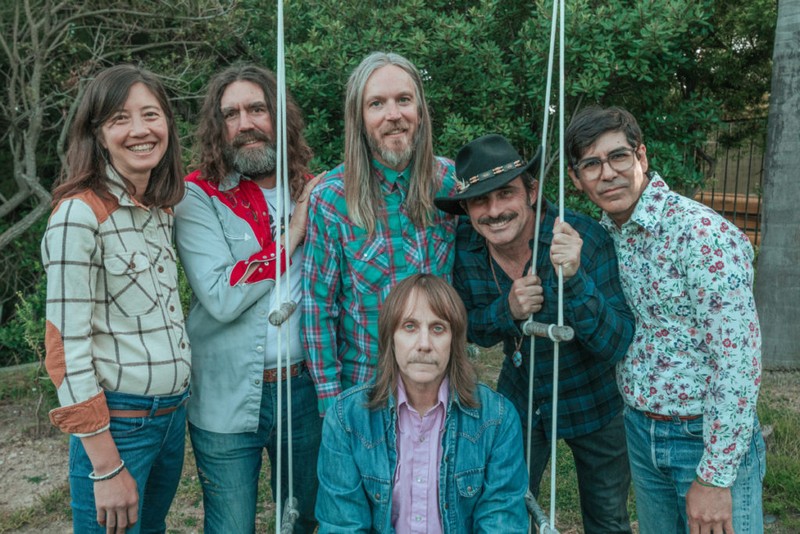 If you’re a fan of alternative Americana rock, there’s no chance you haven’t heard Marc Ribot’s play guitar, and I’d bet even without knowing who was playing you were blown away by how it was perfect for the moment, and yet completely outside of the box of your usual expectations. Ribot’s bio reminds us that RollingStone magazine once wrote that “guitarist Marc Ribot helped Tom Waits refine a new, weird Americana” on 1985’s Rain Dogs. Of course, Ribot went on to record Frank’s Wild Years with Waits, and was soon the go-to guitar slinger for producers like John Zorn and T Bone Burnett, working on major albums like the first Robert Plant & Alison Krauss, and Elvis Costello, Sam Phillips, Joe Henry, and many, many others. Ribot’s colorful, cinematic approach to the guitar has also led to more than 25 albums in a variety of configurations, including work with his band Ceramic Dog, which has been described as a noise rock trio that tends to mingle improvisational garage rock jams with jazz inclinations, while flirting with lo-fi, no wave, experimental psychedelic, and whatever else crosses their minds while remaining decidedly “genre-agnostic.”
If you’re a fan of alternative Americana rock, there’s no chance you haven’t heard Marc Ribot’s play guitar, and I’d bet even without knowing who was playing you were blown away by how it was perfect for the moment, and yet completely outside of the box of your usual expectations. Ribot’s bio reminds us that RollingStone magazine once wrote that “guitarist Marc Ribot helped Tom Waits refine a new, weird Americana” on 1985’s Rain Dogs. Of course, Ribot went on to record Frank’s Wild Years with Waits, and was soon the go-to guitar slinger for producers like John Zorn and T Bone Burnett, working on major albums like the first Robert Plant & Alison Krauss, and Elvis Costello, Sam Phillips, Joe Henry, and many, many others. Ribot’s colorful, cinematic approach to the guitar has also led to more than 25 albums in a variety of configurations, including work with his band Ceramic Dog, which has been described as a noise rock trio that tends to mingle improvisational garage rock jams with jazz inclinations, while flirting with lo-fi, no wave, experimental psychedelic, and whatever else crosses their minds while remaining decidedly “genre-agnostic.”
Connection is the fifth album Ribot has made with Ceramic Dog, which also includes Shahzad Ismaily on bass, and Ches Smith on drums, although on numerous tracks here they are joined by a variety of musical guests. True to form, this album’s 10 tracks are all over the place musically, starting with the title track, which is built around a garage rock groove, Ribot spitting out the beat-poet-like lyrics like a punk rocker covering Velvet Underground. Another more traditional hard rock number, “Soldiers in the Army of Love” builds on a faster, fierce classic guitar hook and driving rock rhythm, building the lyrics the opening words of the Declaration of Independence, with a chorus of chanted vocals that includes Syd Straw, defending those who were not included in that original “we the people” – women, People of Color, those experiencing discrimination – declaring that “we stand up/we fight back/we resist,” defending principles they believe to be “self-evident.” It’s a loud, raucous rant of an anthem of liberation, rooted in love, and for 5 full minutes the driving riff rock takes no prisoners.
Then switching gears entirely, the band flirts with a Latin urban jazz groove with an old school Farfisa organ recalling the early days of rock & roll, while the lyrics speak of “Ecstasy,” until Ribot tears open the sky with a wailing solo that rocks, and then at the end they double up that jazzy rhythm and exalt in the urban lounge vibe. Then there’s “Swan,” a noisy space jam, with a fast rhythm fueled by Smith’s kinetic drum moves, calling forth a layers of droning guitar sounds from Ribot, who’s joined by the dueling horns of clarinetist Oscar Noriega and saxophonist James Brandon Lewis, all soloing on top of each other, all going at it full bore at the same time, steadily chomping at the bit for nearly 2/3rds of the track’s 10 full minutes, with Ribot quieting down the others and playing more reflectively toward through to the end. So, why is it named “Swan” when it feels like “Goose” might have been more appropriate, that I do not know, but I do know there’s something strangely compelling at the monumental racket at the front end, and strangely enough, peaceful and moving at the end. “Heart Attack” is a similarly intense number, with repeatedly yelled lyrics declaring “baby, you can drive my car,” while the guitar seems to be emulating a fire siren. While it may indeed be properly titled, at the front end, it two slides into more of a sax-led jam halfway through, until the whole thing kicks back into full gear again. I mentioned that they are a noise rock trio, didn’t I?
Speaking of noise and no wave rock, the experimental sound of “Subsidiary” seeks to give sonic witness to the fact that “the sky is poisoned/and the stinking truth of oblivion,” the yelled vocals that is soon followed by rhythmic shouts of “hah!” Much closer to a traditional jazz jam is “No Name,” which builds from the steady thump, thump, thumb of a bassline, with guitar and keyboards by Anthony Coleman respond with a more textured sound, that builds into an accessible groove and a reliable melody line and some bluesy guitar lines. “That’s Entertainment” celebrates a “clown with his pants falling down,” and with a steady rhythm and that haunting Farfisa organ sound.
The long instrumental, “Order of Protection” may be the closest thing here to traditional guitar-led jazz that follows the long-established electric jazz pattern that dates back to the mid-70’s and before. It’s in these bright lingering guitar runs, we hear Ribot at his most accessible, proving that he’s serious about wanting to achieve a meaningful connection through his music, but as he proves again and again here, he wants it on his own terms. But if you want frenetic guitar heroics, there’s plenty here in this song’s nearly 11 minutes to set your soul free. When Ribot wants to, he has the skill and the will to deliver the goods. The album closes with a playful take on the Latin music style, cumbia, a dance favorite from Mexico, titled “Crumbia.” There’s colorful melody, lots of room for the horns and clarinet, and bright tuned high-end chimes, and at the end a marching band whistle. Now that, my friends, is entertainment.
Brian Q. Newcomb
For more of Brian Q. Newcomb’s music reviews, check out The Fire Note
Other reviews you might enjoy:
- Share the Wealth (The Nels Cline Singers) – music review
- In the Blossom of Their Shade (Pokey LaFarge) – music review
- To All Trains (Shellac) – music review

The Fire Note started to create a simple place that could showcase records that we liked. Nothing more, nothing less. The focus has always been about the album and the experience that a great record creates. The Fire Note Webzine builds on this idea by offering an array of content that is all about the enjoyment of music, its pulse and energizing attitude.





